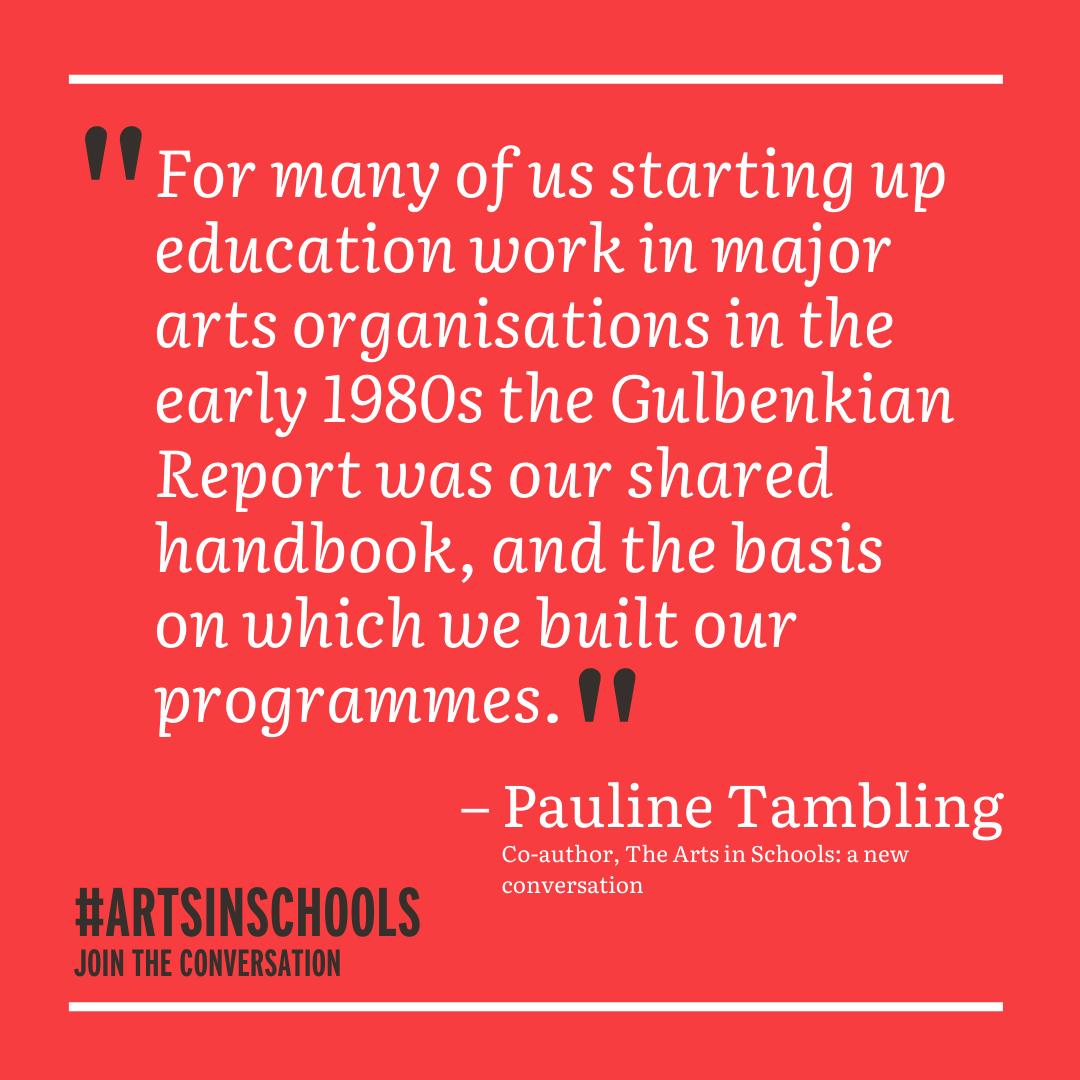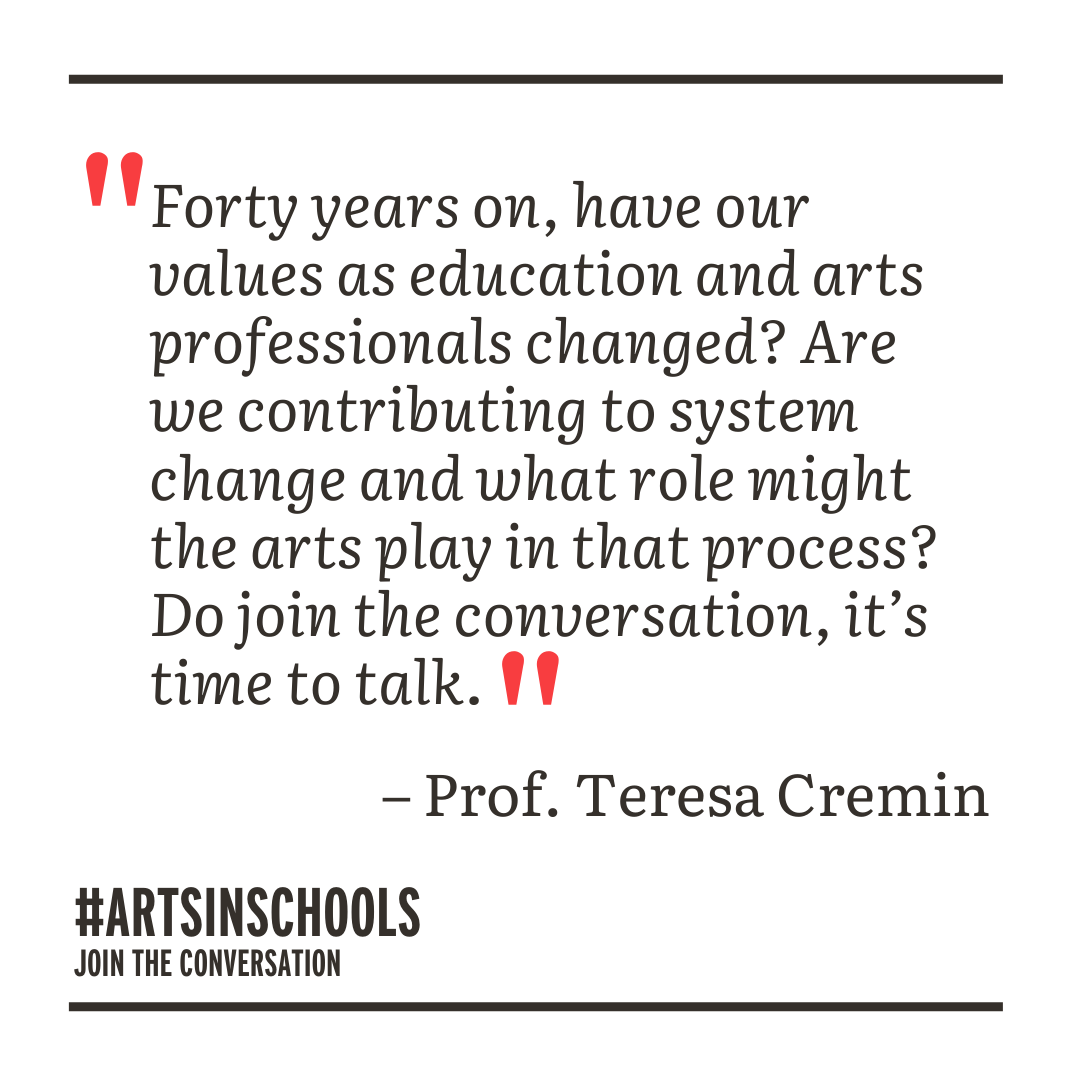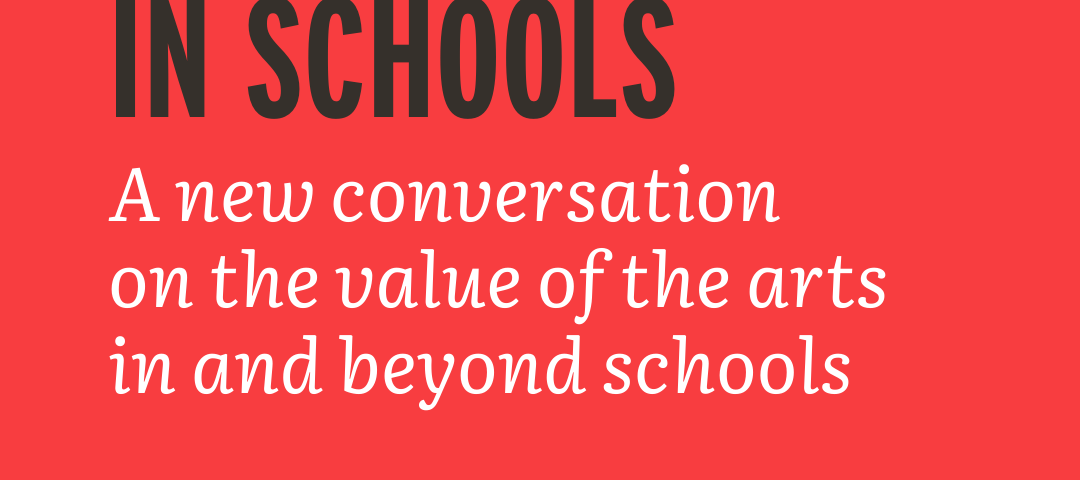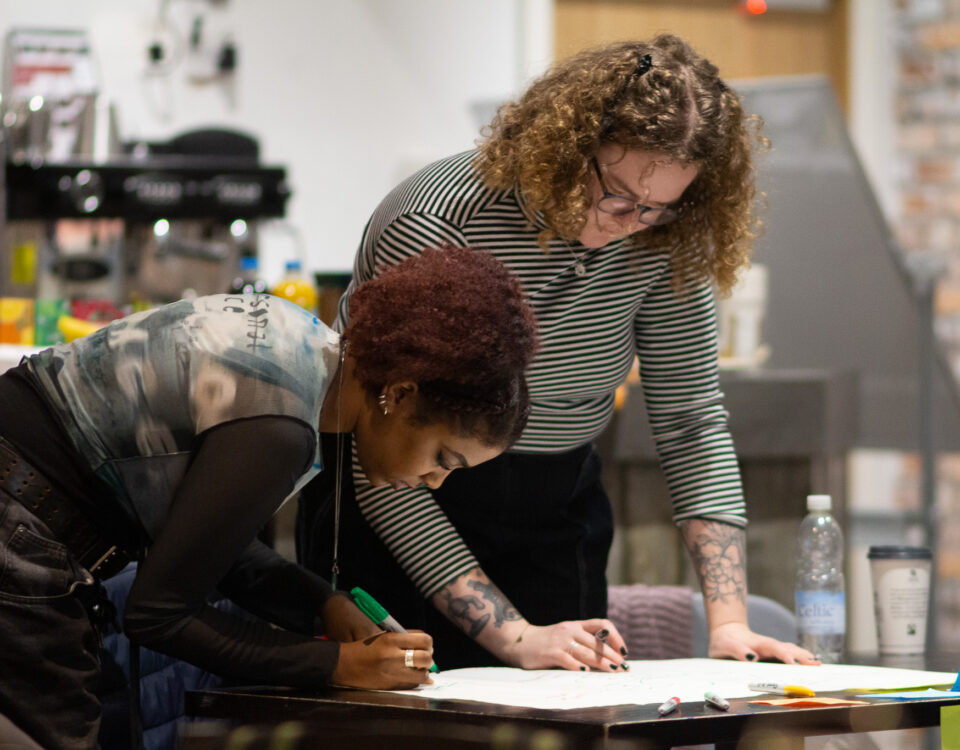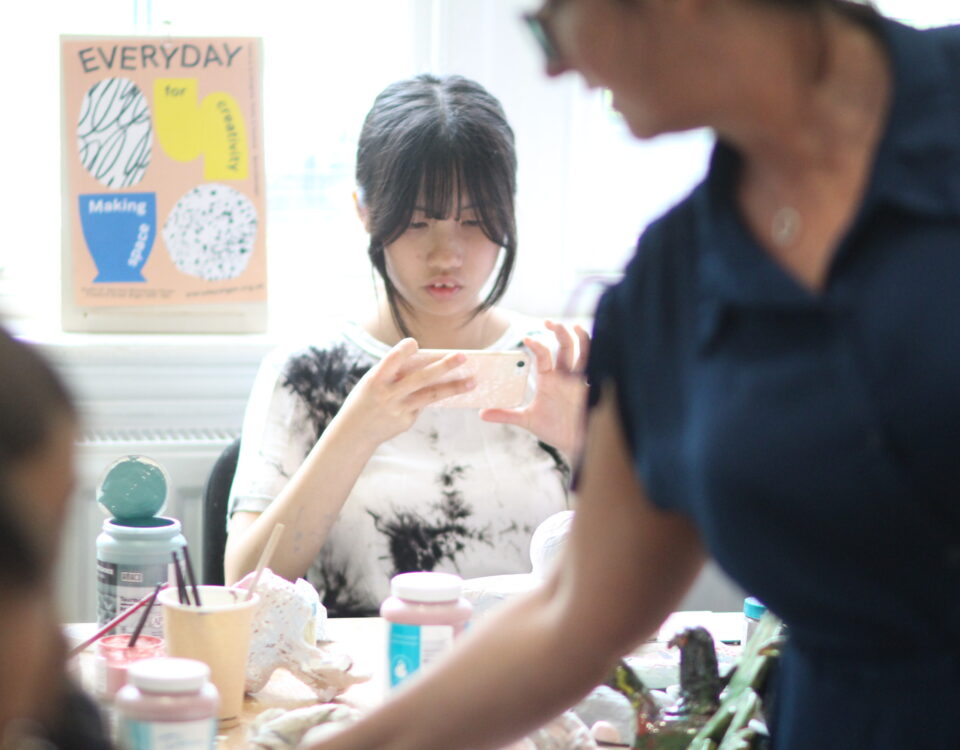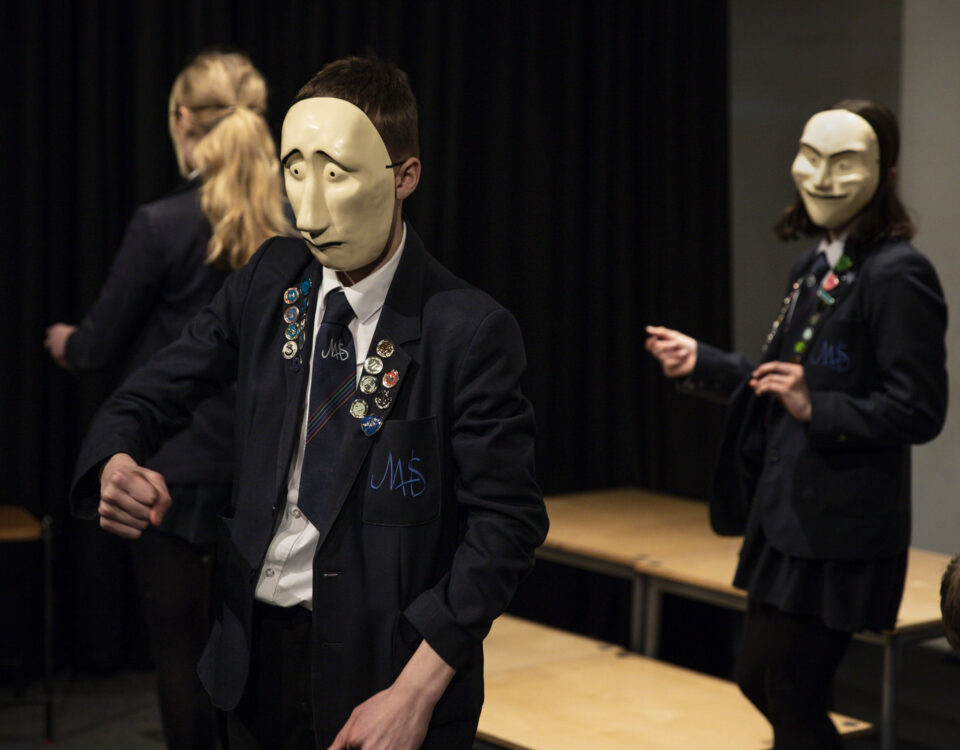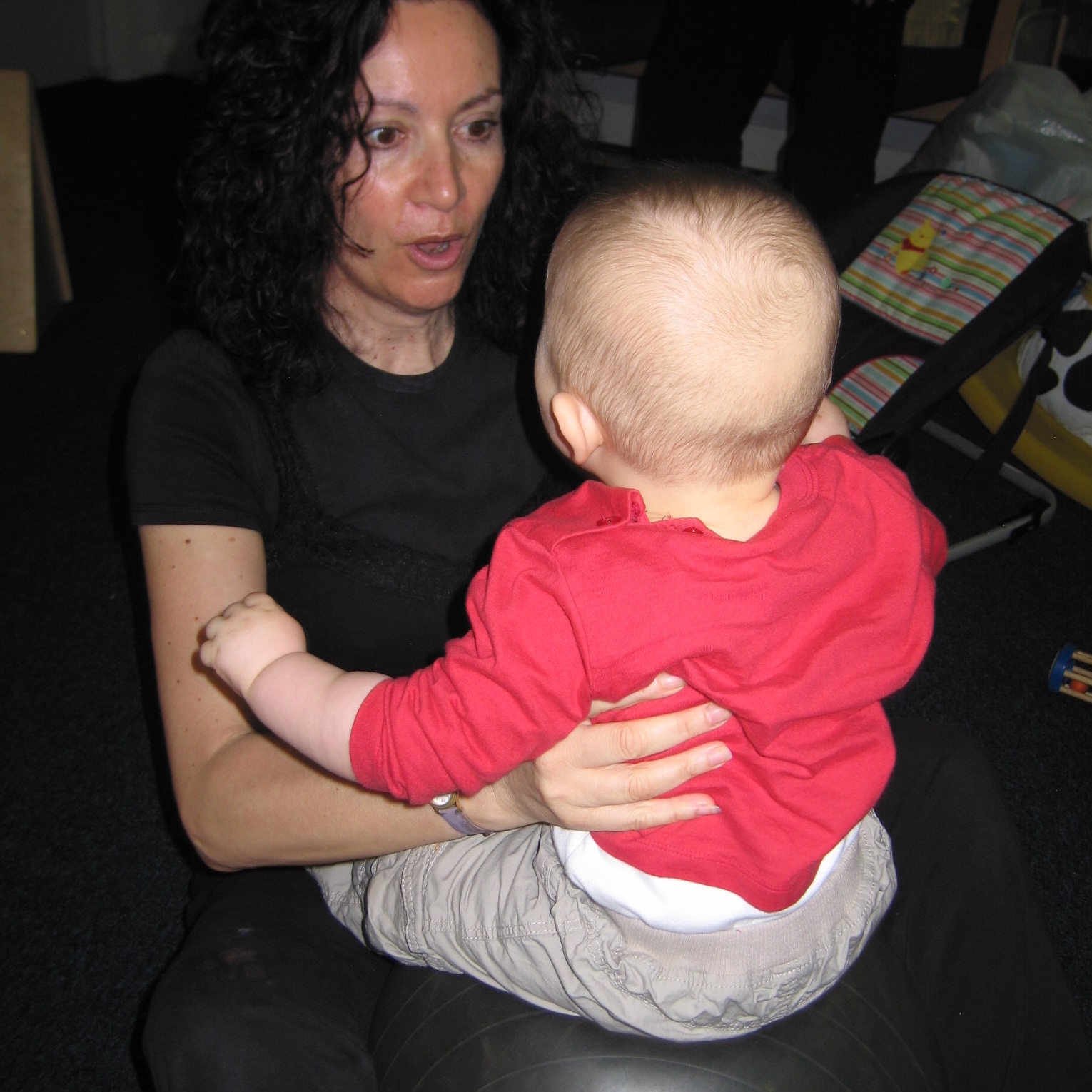
More-than-words: Early Years Pedagogy Workshop
May 26, 2022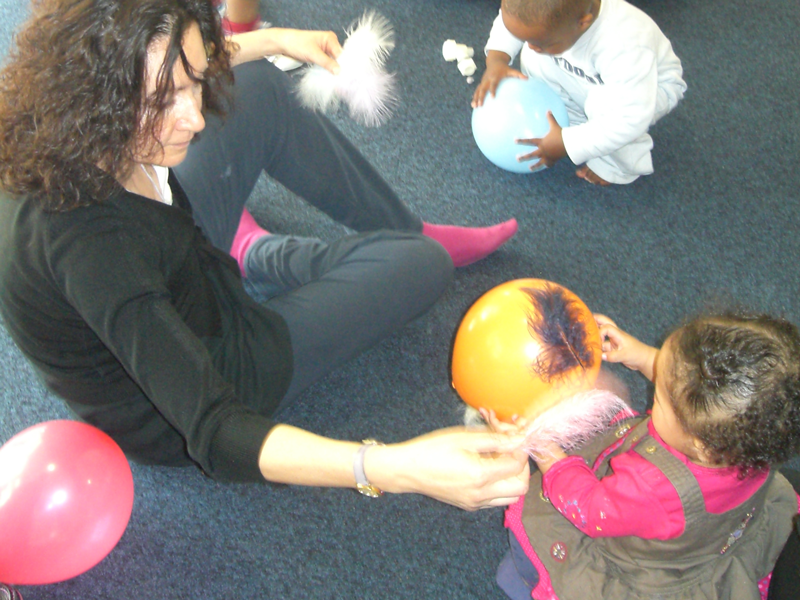
Playing Foundations
July 7, 2022A new conversation on the value of the arts in and beyond schools
Forty years ago, the Calouste Gulbenkian Foundation UK Branch published The Arts in Schools: Principles, practice and provision. This seminal report was hugely influential with Local Authorities, which then managed the country’s schools. It paved the way for the arts to be included in England’s first National Curriculum in 1988 and inspired many professional arts organisations to engage with the education sector for the first time.
Forty years later we do not have the sustained and equitable practice and provision that The Arts in Schools envisioned. Accountability frameworks have marginalised the arts within schools, which do not have parity with other subjects as part of a broad and balanced curriculum. Many of the structural support systems for delivery have been eroded; arts GCSE and A Level take up is declining; and the pandemic has further diminished the opportunities for arts learning experiences.
